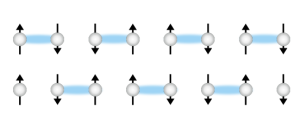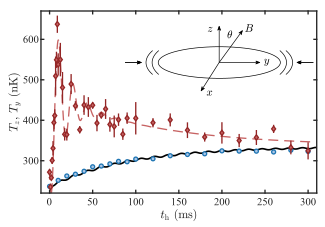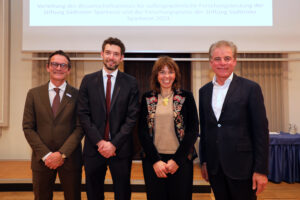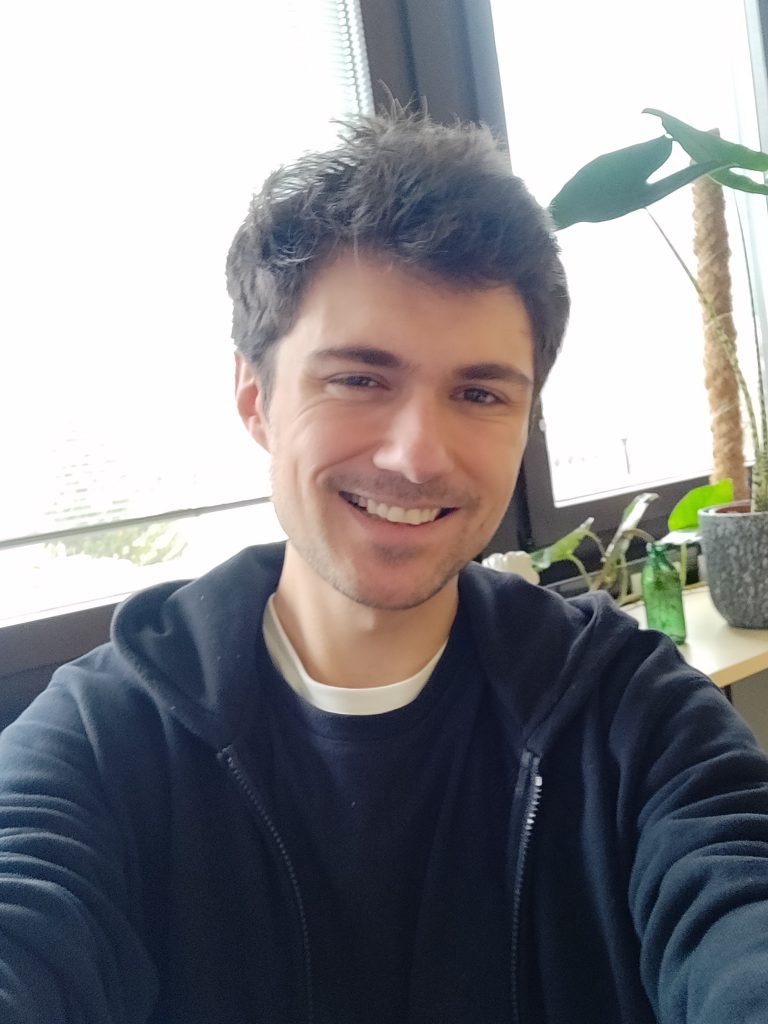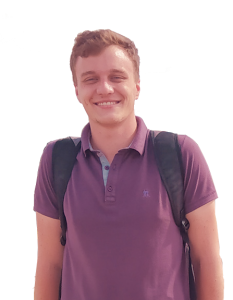
Vortices in a supersolid
Our research on the observation of vortices in a dipolar supersolid has now been published in Nature, and featured by Quanta magazine!

2025 Postdoc & PhD Openings!
We are happy to announce that our dipolar quantum gas group has Postdoc and four PhD positions open for 2025!

Austrian of the Year 2024
Francesca was crowned as the ‘Austrian of the Year’ in the research category at the Austria 24 gala by Die Presse!

Summer BBQ
Our 2024 Summer BBQ took place on the 24th of June and celebrated the many different achievements of the group!

2024 PhD Openings!
We are happy to announce that our dipolar quantum gas group has two PhD positions open for 2024/2025!

Murder Mystery Dinner
Our 2024 group dinner took place on the 18th of January at CasoinN da Giorgio restaurant, with a 1920’s Murder Mystery theme!

Glitches in supersolids: links between neutron stars and quantum matter
By emulating the connection between a rotating supersolid phase and an external solid phase, we were able to replicate “glitches” – sudden jumps in the solid angular momentum driven by quantum vortices leaving the supersolid.

Cluster of Excellence Quantum Science Austria granted
Three Clusters of Excellence in Innsbruck have been funded! With highly endowed clusters of excellence, the Austrian Science Fund FWF creates Austrian flagships of basic research. The University of Innsbruck will coordinate the Cluster of Excellence for Quantum Sciences.

Bloch Oscillations
By letting an erbium quantum droplet fall under gravity through an optical lattice, it is possible to understand the inter-atomic interactions and quantum fluctuations through variations of the Bloch oscillation.

ERC Advanced Grant DymetEr has been funded!
Our group studies dipolar quantum gases made of Erbium (Er) and Dysprosium (Dy) atoms. These extraordinarily magnetic species are a powerful new resource for reaching quantum simulation with strong connectivity, in which each atom is coupled to the other over long distances, and exploring exotic phases of matter that have no classical counterpart.
We have three labs: the ERBIUM LAB, where Er was Bose condensed for the first time ever, the Er-Dy LAB which studies quantum dipolar mixtures under a quantum-gas microscope, and the T-REQs LAB, where we trap Er atoms in arrays of optical tweezers for Rydberg physics. Recently, we have established a Theory Group aimed at studying and predicting dipolar phenomena in dipolar quantum gases and mixtures.
The group, led by Francesca Ferlaino, is jointly located at the Institute for Experimental Physics (IExP) of the University of Innsbruck and at the Institute for Quantum Optics and Quantum Information (IQOQI) of the Austrian Academy of Sciences, and it is part of the Innsbruck Center for Ultracold Atoms and Quantum Gases.
Follow our group’s updates on  .
.
News from the labs
In this now published work, we investigate the extent that angular oscillations of a dipolar supersolid can tell us about the superfluidity of the system. It extends previous studies of linear droplet arrays to two-dimensional crystals.
Keep Reading ...
Together with collaborators at ICFO, Barcelona, we investigate the topological nature of the bond order wave, paving the way towards an efficient quantum simulation of topological phases in many-body quantum systems
Keep Reading ...
Now published in Physical Review A with collaborators from JILA, Boulder (Co), we accurately determine the scattering length for four bosonic erbium isotopes.
Keep Reading ...
Group news
Francesca was awarded the Südtiroler Sparkasse Foundation's Science Prize for exceptional research achievements on the 24th of January 2024 .
Keep Reading ...
Welcome and goodbye
Welcome to Ferdinand Claude in the ERBIUM team! He has joined us as a postdoc from LKB to bring his knowledge on quatum fluid of light to quantum fluid of atoms.
Keep Reading ...
Welcome to Clemens Ulm, who has joined the Er-Dy team for his PhD. During his master study at the University of Strathclyde, Clemens has acquired a great knowledge on quantum-gas microscopes working in the group of Stefan Kuhr and Elmar Haller.
Keep Reading ...
Welcome back to Daniel Grün, who is joining the T-Reqs Lab after spending almost a year in Edmonton (Canada) working with an optical-tweezers setup.
Keep Reading ...
![]() .
.











